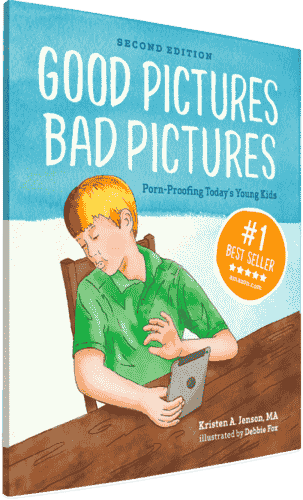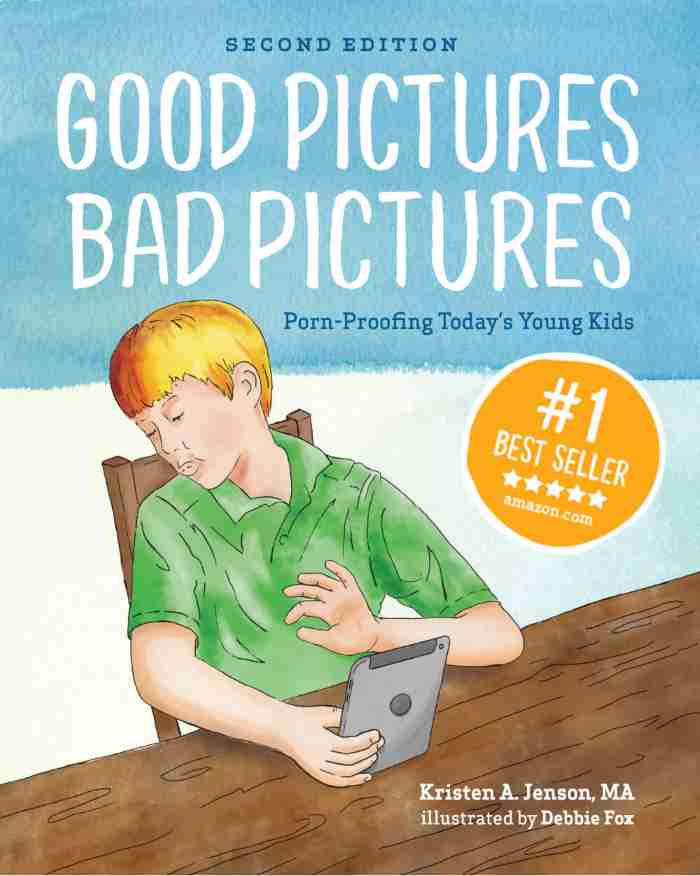
5 Reasons You Should Initiate Your Kid's Curiosity about Porn (Before Someone Else Does!)

Summertime can become porntime for kids who have more unsupervised time and easy access to the Internet. A Google Analytics review showed that searches for the word “porn” spiked 4700% after school let out for the summer. So how do you keep your kids safe? Start talking!
5 Reasons Why Your Kids Are Safer if YOU Initiate a Talk about Pornography
I get this question all the time: "Won't I make my child more curious about pornography if I start talking about it too early?"
Let's think about that.
Isn't it safer for kids to have their questions answered about pornography with a parent by their side than for them to be curious when they’re alone on the Internet or with a friend?
In fact, you want to make them curious so you can answer their questions—proactively, on your own terms.
Here are five benefits to being the first one to introduce and warn your kids about pornography:
- You can set yourself up as the best source of information and invite your kids to come and tell you if they ever see it. You can explain your attitudes and feelings about pornography, as well as all the reasons to avoid it. (Highly addictive, objectifying, hurts relationships, linked to human trafficking, etc.)
- You can create an environment of safety around this topic and assure your child that you will answer all of their questions.
- You can assure them that their curiosity is normal, but warn them that following their curiosity about pornography is dangerous and can lead to addiction. Let them know that they won’t get into trouble when they come and tell you they’ve been exposed to it. This is one of the best ways they can prevent themselves from developing an addiction!
- You can lessen the shame and shock associated with pornography exposure by defining what pornography is so kids recognize it when they are first exposed. (For many people, shame and shock fuel the addictive nature of pornography by increasing the amount of dopamine released in the brain.)
- You can increase the trust in your relationship when you help them to know what to do in an often frightening situation. By giving them a PLAN for dealing with it they will feel that you are helping to protect them. (For a FREE copy of the CAN DO Plan™ poster, subscribe by clicking here.)
Success Story: "I knew exactly what to do."
One mom shared her experience with teaching her 9 year old son the CAN DO Plan. Three days later he came home from school and told her that another student had shown him pornography at school. He said, "I knew exactly what to do. I was scared but I knew what to do."
Instead of facing this troubling exposure alone, this young boy knew his parents were there to help him. He recognized what he saw and already knew several good reasons why he should not look at it. He had no fear of talking to his mom about it because she had talked with him first.
[[CTA]]
So before your summer gets launched, take the time to do the following:
- Establish or review your family rules about Internet use. (Don’t have them yet? Look here for help.)
- Explain why the rules are in place. (Pornography is highly addictive, hurts families, and is linked to human trafficking. Our family wants to protect our brains, our relationships and we don’t want to add to society’s problems.)
- Review your filtering options, making sure all devices are protected and that kids understand why your family uses them. (Click here for a review of filters and here for a post written by a mom who uses two levels of filters.)
It’s inevitable: the media (and often friends) will arouse your kids' curious about sexualized images. But if these outside influences introduce your child to the XXX world, you may never find out until it’s too late. Instead of prevention, now you’re talking about recovery. (Believe me, I’ve heard countless stories to back this up.)
That’s why I believe that it’s much more risky if parents wait to start this conversation. In fact, I agree with therapist Jeffrey Ford: kids need to be given a simple warning as soon as they have any access to the internet. Even a three-year-old can be told to come and tell mom or dad if they see someone without any clothes on while they are on the internet.
Kids are curious!
Kids’ brains are hard-wired to be curious and that’s exactly why parents need to talk to their kids about pornography earlier rather than later. I join many experts who believe that the days are long gone when parents could avoid the subject of pornography in the hope of not fostering curiosity.
Recommended Actions:
- Hold a family meeting to review your family’s media standards, Internet access rules and reasons for using filters. (Don’t forget to serve some yummy treats!)
- Read (or re-read!) Good Pictures Bad Pictures to your kids to explain the simple science behind addiction and teach them the CAN DO Plan to keep their brains safe.
- Model appropriate ways to respond to pornography. Tell your kids what you do when you’re exposed to it.
If the thought of talking to your child about the topic of pornography seems scary or awkward, don’t worry! Protect Young Minds is here to help you every step of the way.
Get answers to these important questions:
- Why are so many good kids getting pulled into pornography?
- How can parents get more comfortable talking to their kids?
- What are the benefits to tackling this subject early?
- What EXACTLY do your kids need to know to stay safe from pornography in every situation?



Good Pictures Bad Pictures
"I really like the no-shame approach the author takes. It's so much more than just 'don't watch or look at porn.' It gave my children a real understanding about the brain and its natural response to pornography, how it can affect you if you look at it, and how to be prepared when you do come across it (since, let's face it... it's gonna happen at some point)." -Amazon Review by D.O.






